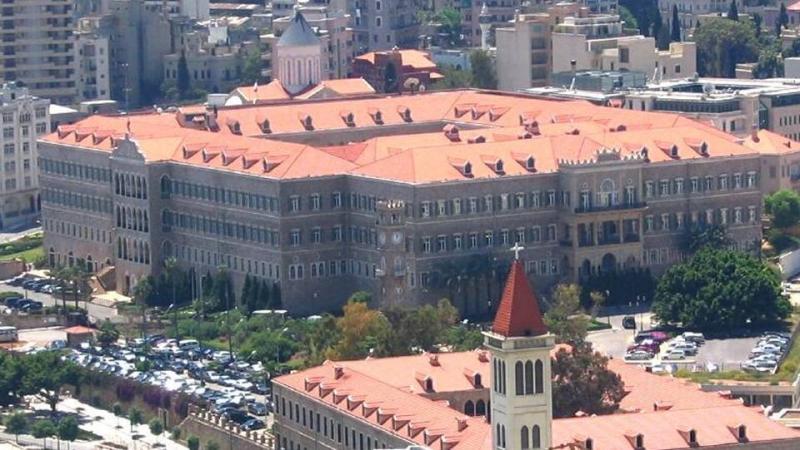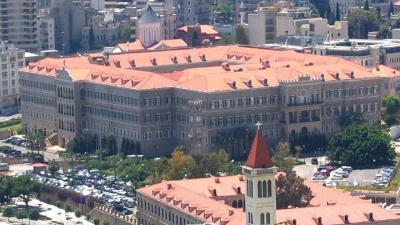There has been more than just casual talk in the political corridors; there are no substantial developments or progress regarding the formation of a new government. Everyone is deferring serious discussion on the matter until after the elections of the parliamentary committees, which form the second scene that can be built upon following the elections of the Speaker of the House and his deputy. Here, we may also see certain political alignments that have their interpretations and implications. Afterward, parliamentary blocs will begin to crystallize their final stance on the government and the personality of the candidate for the premiership. Names of candidates are circulating in the political space, both new and old, but it is difficult to finalize choices or engage with them seriously. Even the Shiite duo, contrary to speculation, has not deeply discussed the government file yet nor initiated consultation about it. Sources from the duo confirm that no position has yet been taken between Parliament Speaker Nabih Berri and "Hezbollah," and the duo has not informed any party of its stance, and the same applies to caretaker Prime Minister Najib Mikati. As of now, the duo has not finalized its decision regarding Mikati, nor has he moved towards either of them. Meanwhile, the position of the "Free Patriotic Movement" is expected to crystallize after the bloc's meeting this week, although its leader, Gebran Bassil, has previously defined the specifications of the prime minister that the “Movement” sees as appropriate, namely one that commits to a set of conditions, including forensic auditing and an electricity plan. This means that the “Movement” seeks a clear commitment from any prime minister it endorses. As for the change MPs, it is still unclear in which direction their positioning will be or who the personality closest to them for nomination is, and whether they will agree on a unified opinion. One of them had previously announced the intention to unify their stance, but as of now, they have not gathered into a single bloc, evidenced by the list submitted by the General Secretariat of the Parliament to Baabda Palace, which did not include their list among the others. All eyes are fixed on who these MPs will select, although statements from some still suggest more of a reckless engagement rather than a responsible one, which points to cooperation with others and agreeing on a rescue candidate in light of the difficult circumstances Lebanon is facing. There is concern about combative choices that do not serve the purpose, similar to the electoral papers they participated with in the elections for the Speaker of the House and his deputy. Hopes are no longer pinned on them, even though they are a decisive bloc if they unite, but their situation is entirely different from that of the independent MPs, some of whom may be counted among those who support Mikati's continued presence, given the deep vacancy in the Sunni scene and because no other candidate's situation and acceptability will be comparable to Mikati's, whose government has initiated certain files that can be continued.
The same mathematical process that led to the election of the Speaker of the House could result in assigning a Sunni figure to form a government, especially if "The Lebanese Forces" decide not to participate in the government in a tangible way, and in that case, their decision would be incomprehensible as it would be a government arising from the results of the parliamentary elections on the basis of which "The Forces" MPs won. The dilemma here is that the majority produced by the ballot boxes will not be able to control its decisions as a majority because it comprises minorities within a majority, which cannot be collectively under a single unified stance due to the divergence and differences in visions. So far, all parties are hiding behind the committee elections and consultations among the blocs to emerge with a position regarding the personality of the president tasked with forming the government, which means that government consultations will not occur before next week, that is, after the crystallization of a candidate or two for leading the government. Meanwhile, the French position has not yet solidified into a government stance. French ambassador Anne Grillo is keen on proving her country's presence in this undertaking, while she has not reached the stage of delivering a clear stance to any political entity she has met. She has previously hinted that her country does not oppose Mikati's continuity and has also suggested a candidate with the specifications of MP Nazih al-Bazari. Meanwhile, the Saudi side is not inclined to engage directly at this time. France has asked not to leave Lebanon alone in its financial crisis—will the price be its direct involvement regarding the prime minister or the president, or both together? The lack of clarity suggests that Mikati might be the most favored and ready to form a government with a mandate that does not exceed 65 parliamentary votes, but he is not willing to sign a government blank check without agreement on a phase of collaboration that differs from previous ones. His sources state that the caretaker prime minister still hesitates in the face of the difficulties, and he will make his final decision in light of developments, hinting that no serious governmental proposal has been put on the table yet and that the matter is tied to the facilitation that could be granted to his government regarding his negotiations with the IMF, the recovery plan, and the approval of what is necessary from laws concerning it in Parliament. Mikati, who preempted the parliamentary consultations by announcing that he is neither rushing nor suicidal, will have his own conditions in return. In Lebanon, even the governmental entitlement is a bazaar where each party raises its price as a ceiling for negotiation and then retreats to the realm of reality, reflecting the state of governmental negotiations.




